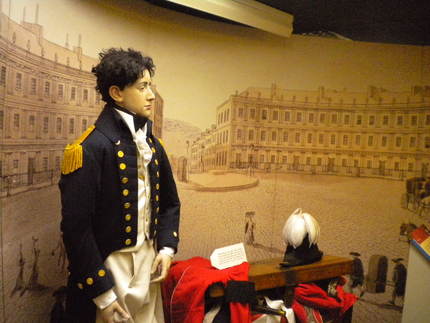
The focus for the discussion will be: Jane Austin’s novels as wartime literature.
To help prepare for the conversation this coming Sunday, Stephanie and Elaine have prepared the following discussion guide. Please give thought to the following questions.
In the 20th century:
We know that Jane Austen’s work was read avidly during WW2 I and II, both by soldiers in the field, and also by British people at home (including, famously, Winston Churchill). In addition, Austen’s work was prescribed as treatment for shell-shocked soldiers and as a source of solace for mourning families.
- Why do you think soldiers read Jane Austen? Is there something uniquely appealing in her writing? (Other authors also were popular, such as Kipling, Doyle, and London.)
- What might be the therapeutic value of Jane Austen’s stories?
- What insights can we glean from Kipling’s account of The Janeites? With regard to shared culture and fellowship? As a means for coping with the stresses of war both during and after combat?
- In what ways were Austen readers experiencing war differently in the 20th century than Austen and her contemporaries experienced war in the 19th century? What was the same? (See comments about the Napoleonic Wars, below)
In the 19th century:
Jane Austen wrote her books during the lead up to and actual conduct of the Napoleonic Wars. Despite the fact that she had brothers in active naval service, that military officers are major characters in her works, and that we know civilians at the time were affected both economically and by occasional fears of French invasion, war receives little if any explicit mention in any of Jane Austen’s novels (Persuasion being the notable exception). Some scholars have argued that Austen can be read as addressing issues of war in her time, notably:
- As expressions of “alarm” reflecting societal anxiety (e.g., the anxiety of Catherine Moreland and others in Northanger Abbey)
- In descriptions of waiting among those not directly involved in the conflict, as in waiting for men to come home (e.g., in many of the her books, families and especially women are depicted as waiting for action to happen).
- In her depiction of the military in a satirical or negative light (e.g., Colonel Forster and his silly wife in P&P, General and Captain Tilney in NA), though not always (e.g., naval officers in Persuasion, Colonel Brandon in S&S).
- Impacts of war on social structure – e.g., new wealth among successful naval officers.
Questions:
- Did Jane explicitly ignore the Napoleonic Wars? If so, why?
- Where can we find evidence in support of theories that Jane Austen, did, indeed, address war issues in her work? Where do we see anxiety? Where are illustrations of waiting?
- Can we find any evidence of a theory advanced by critic V.S. Pritchett, which pushes the military association in an unexpected direction: "I have even seen," he continues, "a resemblance of that second visit to Darcy's house as [to?] a naval battle; for notice there how the positions of the people in the drawing room are made certain, where Elizabeth like a frigate has to run between the lines"? Or of American novelist Eudora Welty’s opinion, also shared during the backdrop of the Vietnam War, that Austen’s fiction resembles the formidable technology of a trans-historical military industrial complex: “Each novel is a formidable engine of strategy. It is made to be – a marvel of designing and workmanship, capable of spontaneous motion at the lightest touch, and of travel at delicately controlled but rapid speed toward its precise destination. It could kill us all…it fires at us, all along the way, using understatement in good aim. Let us be thankful it is trained not on our hearts, but on our illusions and vanities…. She could be our Waterloo; she is our Waterloo…”
- Can we draw any conclusions about Jane Austen’s attitude toward the military?
- Could the backdrop of the Napoleonic Wars and how characters in Austen’s works survived have provided a supportive context for people faced with surviving and coping with war in the early 20th century?